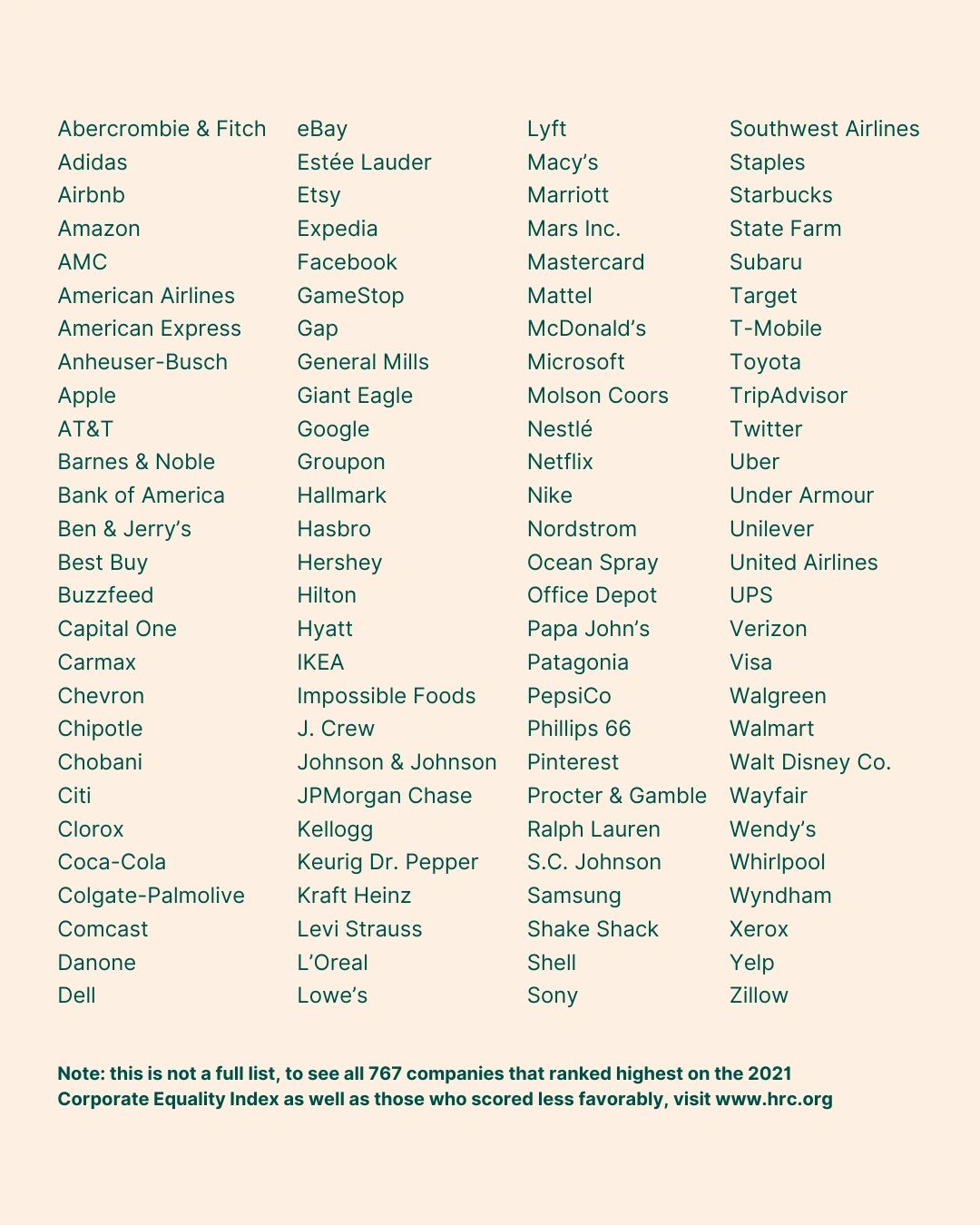By Bailey Chenevert
As another Pride month comes to a close, we are doing a recap of this year’s corporate involvement in Pride and what that means to the consumers out there who choose to support LGBTQ+ equality in their daily spending.
This month, you’ve probably noticed the countless corporate logos that had a makeover with the rainbow flag, but did you know that companies who take it a step further then showing solidarity by actually engaging in LGBTQ-friendly policies tend to perform better financially, both in terms of market valuation and profitability? Clearly this positive stat has caught on with many, as growth of LGBTQ+ friendly policies in the workplace have been on the rise in recent years. In 2020 specifically, the Corporate Equality Index (CEI) listed 767 companies (the most so far!) who achieved a top score of 100, earning the title of “Best Place to Work for LGBTQ Equality.”. The CEI is an annual report released by the Human Rights Campaign that rates thousands of American corporations on LGBTQ+ equality. It examines nondiscrimination policies, equitable benefits for LGBTQ+ workers and their families, corporate culture and corporate social responsibility to determine a company’s rating.
For the companies who have spent more of their focus during Pride month on monetizing rainbow-themed merchandise or PR campaigns and less time on actually implementing clear policies of inclusion within their own organizations, they’re guilty of rainbow-washing. The term rainbow-washing refers to brands that outwardly project solidarity with the message of Pride while, on a corporate level, engage in practices that are not inclusive to their LGBTQ+ population. From a PR standpoint, participating in Pride can be a low-effort way for companies to make more money during the month of June without actually doing any of the work for LGBTQ+ rights.
Rainbow-washing can be as simple as adding a splash of rainbow to an advertisement that a company already had while maintaining inequitable or marginalizing policies. Another example could be selectively rolling out Pride gear in regions where it’s expected to be most profitable and refraining from pride-themed messaging in communities that are less accepting to the rights of its LGBTQ+ members. While the awareness that corporate Pride campaigns provide can be helpful in furthering the movement, doing so without consistency in actions can be harmful and misleading to employees and consumers alike.
Companies that engage in rainbow-washing make it more difficult for consumers to distinguish between corporations who are true allies in the LGBTQ+ movement vs. those who are just being performative.
If you’re looking to avoid rainbow-washing companies and to show your support even after Pride is over, consider including a company’s inclusivity in your next purchasing decision. The CEI “Best Place to Work for LGBTQ Equality” list includes familiar names like Walmart, Amazon, Google and Costco. It’s a good place to start in figuring out how to spend your money in a way that values the LGBTQ+ community. 
At the same time, it’s important to note that some voices remain critical of the companies who make it to the top of the CEI list. The main argument here is that displaying a culture of internal inclusion is not enough, especially if these companies are continuing to send donations to politicians who obstruct legislation for LGBTQ+ equality. For consumers who are looking to take their support a step further, they can combine their use of informative tools like the CEI alongside researching additional information on corporate PAC donations, which can be found on opensecrets.org or fec.gov.
Bailey Chenevert is a freelance journalist and guest editorial contributor for Cluey Consumer. As a recent 2020 college graduate from the University of Louisiana at Lafayette, Bailey supplemented her studies as both a research assistant and a student editor at La Louisiane. Bailey is passionate about impartial reporting on consumerism and the impacts that fashion brands have on our modern world.

